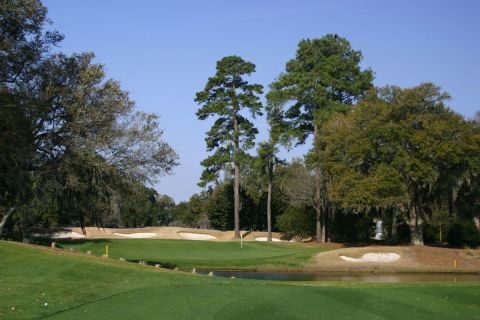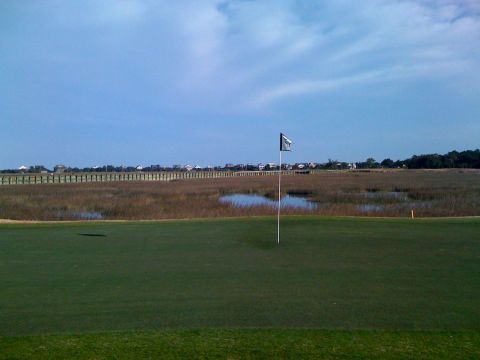In looking at both recent real estate sales activity in the Myrtle Beach area and forecasts for both employment and housing along the Grand Strand, the outlook is tepid at best – much better news for buyers than sellers. As of October, single-family homes in the area are spending 224 days on the market before a sale. The numbers for condos/townhouses and multi-family dwellings are 262 and 328 days, respectively. Such long waits to cash out put pressure on sellers to accept lower offers than they would have considered in the early months of their listing. It also emboldens buyers to offer prices that they would consider insulting were they on the other side of the sales equation. Such is the free market…
Cold months can be hot time to buy
More than 8,000 homes (condos and single-family) were listed for sale in the Myrtle Beach area in October, according to the MLS (Multiple Listing Service); just 485 sold. Now that Myrtle Beach’s off-season for golf and tourism has begun, local realtors expect potential buyer traffic to slow; only those under significant pressure to sell are likely to list their homes during
Myrtle Beach, despite the beating its real estate has taken since mid 2007, when the average home was valued at 27% more than it is today, remains one of the most diverse golf retirement markets in the nation. For the retiree or second home owner who wants a private club experience, Myrtle Beach offers only a few, but choice, options, among them DeBordieu, a Pete Dye layout in the most southern, and most expensive, community on the Grand Strand; Wachesaw Plantation, a Tom Fazio classic layout about five minutes from a hospital, a mall and the Atlantic Ocean; The Reserve Club at Litchfield, a Greg Norman design that is part of the McConnell Group of courses and, therefore, offers members reciprocal privileges at its other clubs in North Carolina; and The Members Club at Grande Dunes, in the heart of Myrtle Beach, just to the west of the Intracoastal Waterway. The Surf Club, a more classic George Cobb design in North Myrtle Beach is private but visiting golfers who want to play it can typically find a way.

The 8th at Caledonia Golf & Fish Club, most players' favorite course of the more than 100 along the Grand Strand of Myrtle Beach. Photo by Elliot deBear.
Those who are willing to work a little for their tee times will find more than 100 public golf courses in Myrtle Beach of virtually every stripe and, most of the year, at prices that might make a golfer out of a Scrooge. The two most highly rated among them anchor the north and south ends of Myrtle Beach. Many raters, for example, consider Mike Strantz’s Caledonia Golf & Fish Club in Pawleys Island the best golf course, private or public, on the Grand Strand; and after some condition issues a few years ago, Tidewater Golf Club in Little River, just below the North Carolina state line, has returned to its former glories. In between are such excellent layouts as Pawleys Plantation (Jack Nicklaus), TPC of Myrtle Beach (Fazio), True Blue (Strantz), The Legends Resort (two courses by Tom Doak, one by P.B. Dye) and the Barefoot Resort (four by Fazio, Davis Love, Pete Dye and Greg Norman).
Passport to excellent and cheap golf
Adding to the allure of passing up private club membership is the Myrtle Beach Golf Passport which, for $40 annually, provides any full- or part-time resident of Horry, Brunswick or Georgetown Counties deeply discounted green fees at most of the golf courses in the area (including those mentioned above). One recent special provides an insight into the bargain nature of the Passport: Four rounds of golf at a limited but excellent choice of golf courses (and just one mediocre one); a $20 gift card to a local golf superstore; a $60 Nike discount card; and a $50 dining gift card to a local upscale restaurant chain. The total price was just $89.
Yes, it can be a hassle to arrange a tee time during peak vacation times of the year -– March, April, September and October –- but for many, the variety of courses available to play and their bargain priced green fees will be deciding factors.
Next: The Myrtle Beach real estate market, now and ahead
























